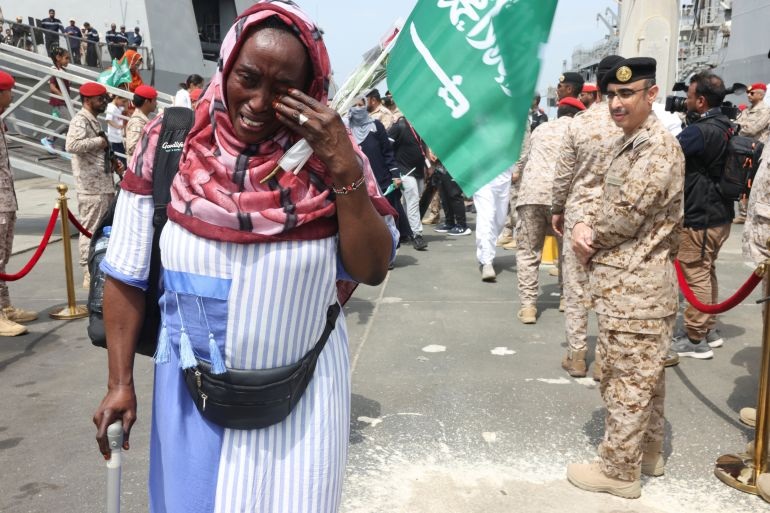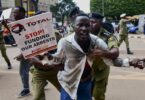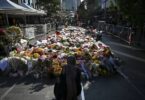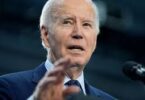Tafi Mhaka
On April 24, just nine days after the beginning of Sudan’s deadly conflict, the Sudanese Armed Forces (SAF) and the rival paramilitary Rapid Support Forces (RSF) said they agreed to a 72-hour ceasefire on the back of two days of “intense” negotiations led by the United States and Saudi Arabia.
In a statement announcing the much-welcomed nationwide truce, US Secretary of State Antony Blinken urged the warring parties “to immediately and fully uphold the ceasefire” and added that “the United States will coordinate with regional and international partners” to achieve a permanent peace agreement. True to his word, just two days later Blinken had a phone conversation with African Union (AU) Commission Chairperson Moussa Faki about “ending the fighting in Sudan”. In an official statement, Blinken said he and Faki agreed that “the AU’s continued leadership remains essential in pressing the SAF and the RSF to immediately cease military operations and allow unhindered humanitarian access”.
Despite all the pleasantries about the importance of African leadership in Blinken’s press release, however, the situation was crystal clear: an African nation was engulfed in deadly conflict and, yet again, the US – the unapologetic doyen of neocolonialism – was leading the global response. In the face of a crisis unfolding in their own backyard, African leaders and diplomats were reduced to background actors and commentators with no impact. Sure, there were some African efforts – at least on paper – to ease the violence. Comoros President and current AU Chairman Azali Assoumani said he had phone conversations with SAF head General Abdel Fattah al-Burhan and RSF chief General Mohamed Hamdan “Hemedti” Dagalo, on April 23 and 25 respectively.
On April 28, in an official statement published by the AU, Assoumani described his deliberations with the two generals as “rich, constructive and promising”, and called on “all actors of the international community to support the efforts of the African Union to restore peace and stability in Sudan”. However, it seems these “promising” conversations failed to deliver any meaningful results, as an extension to the US-Saudi brokered April 24 ceasefire was secured not by any AU official or African leader, but once again, by the US and Saudi Arabia. There was no mention of the AU’s supposedly pivotal leadership when the Saudi-US facilitated talks began in Jeddah on May 6, either. Left to follow the negotiations from afar, the AU attempted to include itself in the conversation by issuing a statement “reaffirm[ing] the imperative of the ceasefire in Sudan” and demanding al-Burhan and Dagalo show respect for “International Humanitarian Law and International Human Rights Law”. Nevertheless, there was once again no mention of the AU – or any African power for that matter – in the Jeddah Declaration of Commitment to Protect the Civilians of Sudan, which was signed and published on May 11.
In short, throughout the continuing Sudan crisis, African diplomats were overshadowed and reduced to loquacious spectators by the US. Far from coordinating and leading a comprehensive intervention, all the AU has managed to do so far was to release a couple of generic soundbites and express hollow concern for the wellbeing of Sudanese civilians. It has been more than a month since fighting erupted in Khartoum but the leading African body has not yet found the time to convene an emergency heads of state meeting to deliberate on the deadly conflict. Many African leaders, however, had time to attend the coronation of King Charles III in London on May 6.
It has been more than a month since fighting erupted in Khartoum but the leading African body has not yet found the time to convene an emergency heads of state meeting to deliberate on the deadly conflict. Many African leaders, however, had time to attend the coronation of King Charles III in London on May 6. In October 2001, speaking to a joint session of parliament on the New Partnership for Africa’s Development (Nepad) in Cape Town, former South African president Thabo Mbeki said, “We are agreed that we must strengthen democracy on the continent; we must entrench a human rights culture; we must end existing conflicts and prevent new conflicts.” Following the establishment of the AU less than a year later, in July 2002, African leaders resolved to shun external interventions – from countries like the US – and instead implement African solutions to African problems.
Sudan, under the military leadership of former President Omar al-Bashir, swiftly emerged as one such challenge. In 2003, a war erupted between the Sudanese government and rebel groups in Darfur. In the following few years, the conflict claimed some 300,000 lives and displaced more than 2.5 million people. To suppress the rebellion against his regime, al-Bashir recruited the assistance of the so-called Janjaweed militias – which eventually evolved into the RSF – and provided them with funding and immunity from prosecution.
Subsequently, in 2009, the International Criminal Court (ICC) indicted al-Bashir for genocide, crimes against humanity and war crimes committed in Darfur, after it found evidence of mass atrocities committed by government forces and the Janjaweed paramilitaries. Unfortunately, the AU – in a flawed and damaging bid to advance “an African solution” to the Sudan problem – refused to help bring al-Bashir to international justice.
It advised its member states to ignore the ICC warrant, claiming that the ICC was unfairly targeting African leaders and that al-Bashir’s lawful arrest would endanger attempts to secure peace in the Darfur region and South Sudan. In addition to these imprudent and unwarranted anti-ICC actions, it endorsed a sham presidential election in April 2015, which the opposition boycotted and al-Bashir won by 94 percent of the vote, as “the expression of the will of the voters of Sudan”. Four years later, the RSF and the Sudanese army conspired to remove al-Bashir from power, following nationwide demonstrations against his 30-year-long despotic rule.
Although it said it strove to advance peace in Sudan, the AU refused to support international law and international cooperation as stipulated in the Constitutive Act of the African Union. And while it was supposed to serve the people of Sudan, it disregarded basic democratic norms and the values enshrined in the African Charter on Human and Peoples’ Rights. It mollycoddled a ruthless dictator and suspected war criminal in al-Bashir for years on end. Amid widespread repression, insecurity and corruption during al-Bashir’s tenure, it failed to support the pressing sociopolitical and economic interests of ordinary Sudanese.
For it was in the years following the meaningless uproar over the ICC warrant that al-Bashir formalised the illiberal Janjaweed militias into the RSF, a development that would have severe ramifications for peace and democracy in Sudan. In April 2019, the RSF was involved in the military coup that ousted Bashir. In June of that year, it led a devastating crackdown on a peaceful sit-in protest in Khartoum that left 120 people dead and hundreds injured. Later, it would participate in the October 2021 military coup that toppled the short-lived transitional government of Sudan and thwarted democracy. Now, along with the equally repressive Sudanese army, it has plunged Sudan into another cataclysmic conflict. The AU claims to be a dynamic and people-centred Pan-African organisation, but it has helped foster a dangerous and regressive military complex in Sudan. To be sure, progressive African interventions and solutions should promote democracy and good governance without fear or favour. And to be sure they should be prioritised over any solution or intervention offered by old or new colonial powers with ulterior motives and conflicting interests. For a long time in Sudan, however, the AU allowed an illiberal dispensation to fester and remained idle in the face of immense human suffering. Enough is enough. Sudan is in Africa – it is not a remote and troubled US outpost. It is indeed Africans who should be solving African problems. It’s high time the AU stuck by its own declarations and fulfilled its expansive mandate.







